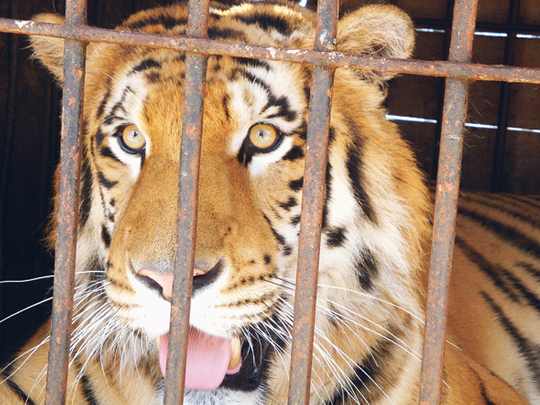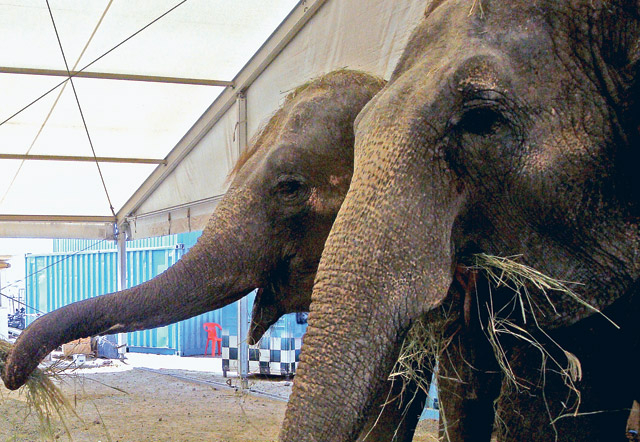
Dubai: Egyptian circuses travelling the length of Africa and in the Middle East are not a welcome sight for animal protection activists, who say few actually care about the animals and travel under the guise of a circus to trade in endangered and often potentially dangerous animals.
Jason Mier, Executive Director, Animals Lebanon, an animal welfare protection group in Lebanon said for some family circuses "smuggling goes back 20 years".
The NGO recently exposed cruelty being inflicted on animals of the Egyptian Monte Carlo circus which travelled to Lebanon, run by the Akef family. It is believed Mamdouh Al Helou, who sold two lion cubs that were brought to Abu Dhabi, and the Akef family work together.
"For many circuses the cages never meet the proper airline criteria which is why they have to drive long distances," said Mier.
"In Lebanon there are no animal welfare laws to help us fight these cases, but the UAE is much stricter… It is illegal to sell any animals that have been brought in for the circus."
As far back as 1995, Akef's circus made international headlines when it was run out of Zimbabwe after an animal protection group tried to rescue abused animals. The New York Times reported that "even for a circus, the Akef caravan is a bit bizarre. Most circuses hustle from town to town to sell as many tickets as possible. But the Akef circus moves desultorily. It arrived in Zimbabwe in May, gave sparsely attended performances in July and August, and left in early November."
One of the lions left behind by Akef was a Barbary lion the last of which in the wild was shot in 1921 in Morocco. Zoos worldwide are trying to breed the subspecies into a viable population.
Crocodile dealer: Shop still in business
Three months after a baby Nile crocodile was illegally purchased at Sharjah Animal and Bird Market in an undercover investigation by Gulf News, the store it was bought from is still in business.
In December 2009, the baby croc called Harry was bought easily from a trader, who claimed he could provide interested buyers with "any big cats" or "big, big animals'" The vendors were never brought to justice.
Sharjah Municipality, which manages the market, told Gulf News at the time that residents who have suspicions about anybody selling or keeping exotic animals illegally should call their hotline on 993. Apparently once a resident lodges a complaint, the customer service representative will forward the information to the Security Section. The baby crocodile was handed over to Dubai Zoo where it is not doing very well after the trauma it underwent on being snatched from the wild.













